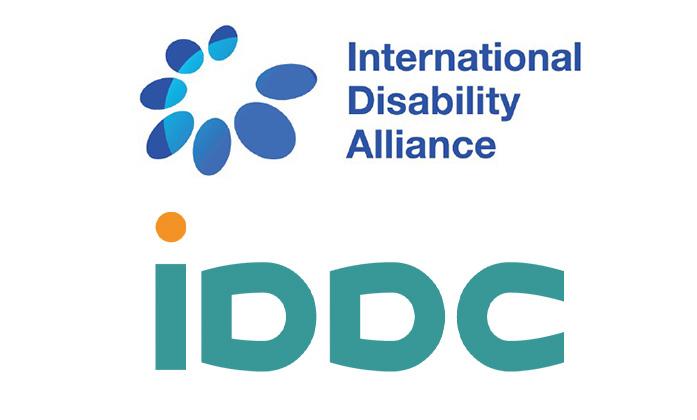IDA-IDDC Joint Reaction to the WHA Resolution on COVID-19 response

Tuesday 2 June 2020. The International Disability and Development Consortium (IDDC) and the International Disability Alliance (IDA) represent disability-focused civil society organisations and Organizations of Persons with Disabilities worldwide. Together, we are monitoring the impact of COVID-19 on persons with disabilities and using this evidence to strengthen the COVID-19 response and recovery. In our joint public statement, submitted to the World Health Assembly (WHA) as non-state actors, we stressed the importance of ensuring inclusive access to health, in line with the Convention on the Rights of Persons with Disabilities.
We congratulate the WHA for unanimously adopting the Resolution on COVID-19 response, which demonstrates the attempt of the international community to tackle the pandemic with unity, solidarity and multilateral cooperation. We welcome the emphasis on the poorest and most vulnerable and the call for universal and equitable access; however, these principles risk remaining empty shells, without a global pool for open licensing of patents and without systematic consultation and meaningful participation of vulnerable populations to build response.
We commend WHA for adopting a Resolution that recognises the need to protect the most vulnerable groups, including persons with disabilities, who are disproportionately affected by the COVID-19 pandemic. In particular, we applaud the specific call for national action plans to integrate age- and disability- sensitive and gender responsive measures across government sectors against COVID-19. In order to make this call a reality, we urge national authorities to ensure the meaningful participation of persons with disabilities and their representative organizations in the designing and implementing of national action plans.
It is disappointing to acknowledge that the Resolution does not integrate aspects that are essential to build inclusive prevention, response, and evaluation plans: there is no reference to the need to collect disability disaggregated data and to make COVID-19 information accessible to everyone. Specific reference to the need to protect and promote the health of persons living in institutions and care facilities that have been particularly vulnerable to COVID-19 is also lacking.
COVID-19 has exacerbated the barriers that many persons with disabilities have been facing when accessing health information and services before the starting of the pandemic. We have also witnessed how persons with disabilities are particularly affected by the disruption of essential services due to the pandemic. As State members progress in strengthening their health systems to adequately respond to the pandemic and ensure that essential services continue to operate and adopt safety standards, we call for these initiatives to consistently refer to accessibility, participation and non-discrimination as key guiding principles. We commend that sexual and reproductive and mental health services are listed amongst the services that should be maintained. However, we highlight that also the provision of rehabilitation services and products should be ensured during the current health crisis, as they are essential for persons affected by COVID-19, as well as for many persons experiencing loss of function and disability due to other conditions.
Despite recognizing that health technologies and products against COVID-19 are essential public goods, the Resolution misses the opportunity to create a global pool for open licensing of patents and know-how in the prevention, detection and treatment of COVID-19. The call for a ‘voluntary pool’, contained in the Resolution, de facto limits the manufacturing and import of affordable copies, with a negative impact on the availability and accessibility of vaccines, treatments and tests, in particular for the most vulnerable groups in low-income countries and fragile contexts.
We appreciate that the WHA Resolution reiterates the importance of meeting the needs of low- and middle-income countries through timely and adequate development and humanitarian assistance. In particular, we urge Member States to comply with the Resolution’s provision that calls to ensure the safe and unhindered access of humanitarian personnel and to protect medical facilities, as well as the delivery of supplies and equipment.
We fully support the intent to continue building and strengthening the capacities of the WHO at all levels to fully and effectively perform its functions. In a moment where the role of the WHO is significantly undermined, we believe that multilateral cooperation is the answer, and we remain ready to cooperate with the UN system and all key stakeholders to ensure inclusive access to health.
Finally, the WHA itself, organised exceptionally and for the first time online, could have been a unique opportunity to ensure accessibility via online technology, but many delegates experienced issues to access and interact, and some Organizations of Persons with Disabilities did not manage to register and participate in the Assembly due to inaccessibility of the website. We remain available to support WHO in ensuring that future WHA can meet these accessibility standards in its virtual and in person formats.
